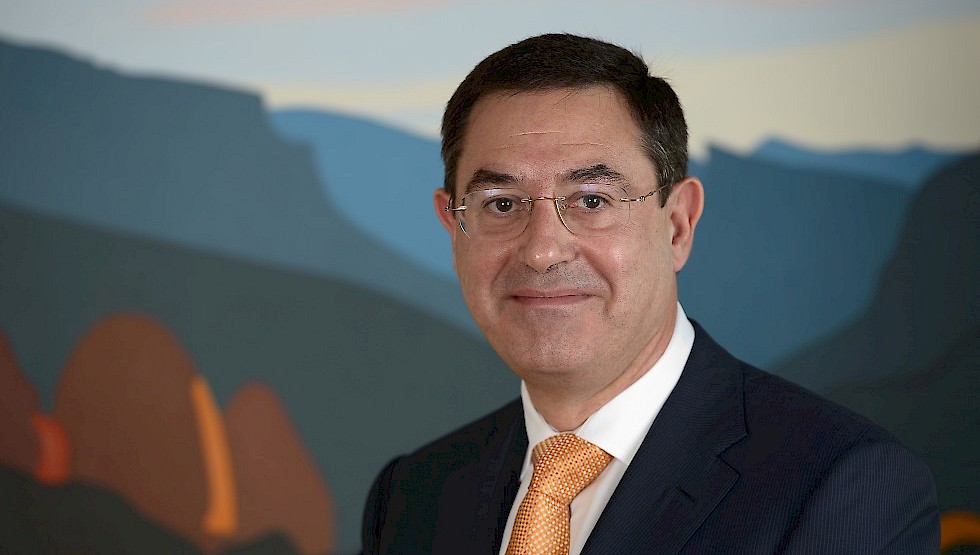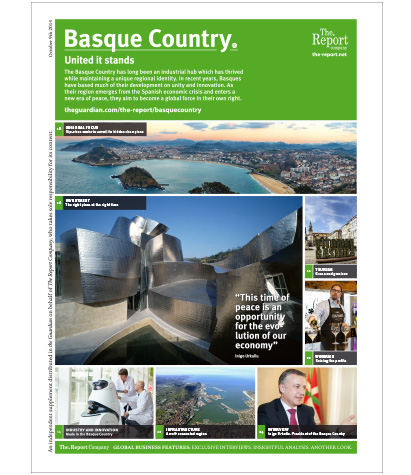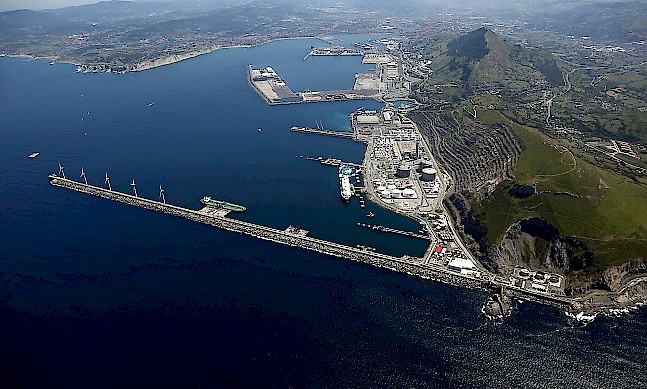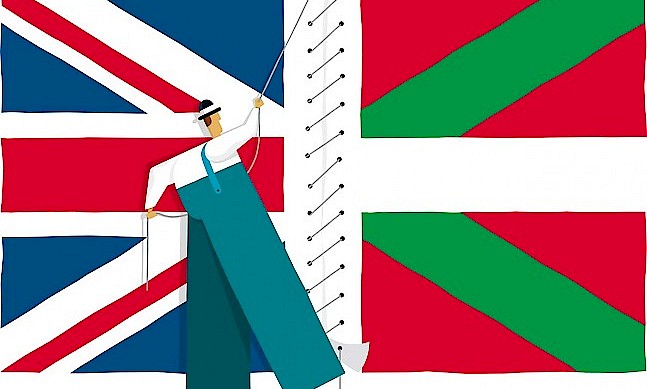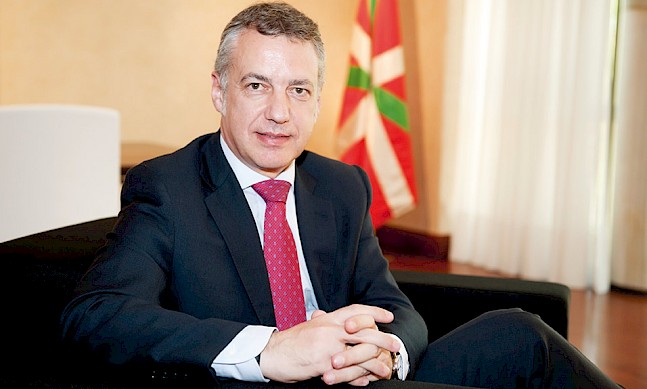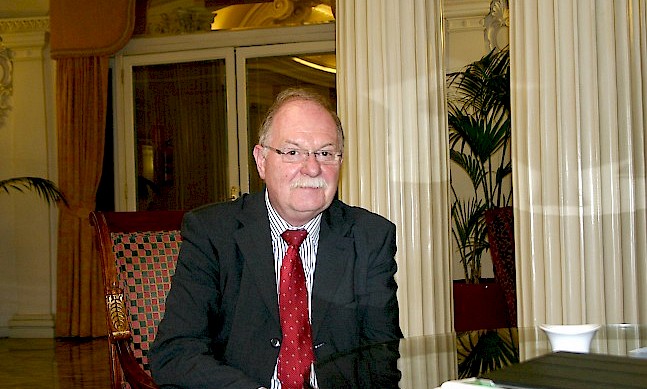Alberto Garcia Erauzkin talks to The Report Company about Euskaltel’s rise to the top of the Basque telecoms industry, what makes the company unique, and its challenges for the future.
The Report Company: How did Euskaltel come about?
Alberto Garcia Erauzkin: Euskaltel is an initiative set up by the Basque government and Basque savings banks in the 1990s during the crisis, when we realised we needed to make technological progress. One of the resulting initiatives was improving telecoms infrastructure with the latest technology at the time: fibre optics.
Later, at the end of the 90s, the Basque government and Basque savings banks took advantage of the deregulation of the telecom industry by the central government to form a technological partnership called Retevision. It was the second biggest telecom provider in Spain, an alternative to the monopoly held by Telefonica, and Euskaltel was the Basque telecom operator.
At that time, Euskaltel shareholders included Telecom Italia as technological partner, Iberdrola, Endesa, the Mondragon Group and Retevision.
Euskaltel was born to be the leading telecom provider in the Basque Country. This is still our vision. We want to be the leading telecom provider in the Basque Country. We want to satisfy all the needs of the Basque customer, whether they are a business or an individual. We want Basque society to see us as a net contributor to the wealth of the region.
TRC: How did Euskaltel become a leading telecoms provider?
AGE: The architects of the cable telecom networks originally conceived for the domestic market, for broadband and pay TV, did not have a complex enough architecture to provide sophisticated services for every type of business, including large corporations.
However, at Euskaltel, we developed a more complete, complex architecture, which means that we do 30 percent of our business with companies, and we are a reference point for large companies. This is what we always planned. Around 600 companies have worked with Euskaltel since it started. We have about 2,500 staff who work solely for Euskaltel, of whom the vast majority work for companies outside Euskaltel. That's how we started and that's how we've developed.
The fundamental idea was that we thought there needed to be an alternative network to the one held by the monopoly so that there could be real competition. First, we wanted another network, and we wanted it to be fibre optic. Second, we wanted to reach everybody. We've always offered land lines, mobile, voice calls, data, and internet and TV in bundles.
The last thing that was important was attracting talent. We knew there were many Basques working in large telecom providers and manufacturers in this industry. Initially, we were aligned with Retevision due to mutual need. Then we went our own way, and now we have our own network that covers 85 percent of the population with fibre optic. We've got to the point where that is economically viable. When we started to invest, and in total we've invested nearly €2 billion, the figures made sense if we had a market share of more than 30 percent. We've reached and overtaken these figures so the investment was justified. More than 40 percent in land lines, more than 40 percent in broadband, more than 60 percent in digital TV, and nearly 20 percent in mobile telephony. Since 2001 we have grown continuously. And our income has also grown since 2008, the start of the crisis. Between 2008 and now, we have maintained the income we had before the crisis, while the market has fallen more than 25 percent.
TRC: What is Euskaltel's R&D policy?
AGE: We have two types of innovation: technological innovation and non-technological innovation.
We always need the latest technology. To that end we've signed agreements with large global manufacturers in exchange for carrying out controlled pilot schemes that test the latest technological advances. As we are a small region and we can carry out controlled tests, the manufacturer gives us the latest technology. They can see the results. In exchange for this, Euskaltel gets to use the latest technology before any other service provider.
In the non-technological innovation sector we are coming up with new bundles for the market. The first is convergence: landline-mobile deals. Secondly, we have unique offers that set us apart from other providers. We came up with the first broadband tariff for example.
There is a fundamental point here. I'm an economist, and it's not that I don't appreciate the value of technology, but I think it's all relative. The best thing you can do for a customer is give them the feeling that you are honest in all your dealings with them. And that means being different in customer service and the relationship you have with them. Technology and products can be copied. What you can't copy is the general feeling of trust you create with a customer, or the people you have working on projects, that your competitors don't have.
TRC: How do you maintain a good relationship with your customers?
AGE: We always do better in rankings than our competitors. We ask competitors' customers what they think of their provider, and what they think of us. They always have a worse idea of the competitor than our customers do of us.
You have to fix a customer's problems, ensure they've been fixed properly and do it quickly. You need to have a specific customer management system that almost pre-empts the customer's problem, above all for businesses. The key is for the customer to know that you're always telling the truth, that you're offering them the best, and that when they have a problem, you resolve it quickly.
One thing is very important; a satisfied customer will usually not talk about it to other customers or potential customers. But if you let them down, then they'll talk about it. We have micro analysed every element of our relationship with the customer. For example, we have always kept our call centres in the Basque Country. It makes costs higher, but it's an investment that created value for the customer. They know they're being helped from nearby. Closeness has always been a key factor. We have a kind of bible with four attributes: closeness, innovation, commitment and service. With all of this, the customer then makes you the leader.
“I think there is something very important here for foreign investors, which is the reliability of planning, striving for excellence, a commitment to economic efficiency and efficiency in general.”Post This
TRC: What are the brand values of Euskaltel?
AGE: Closeness is a fundamental one as well as being a technological reference point. We have been involved in sponsorships that transmit leadership, and programmes for the Basque Country and its culture, as well as sport, among others.
TRC: What makes the Basque Country a good place to do business?
AGE: One of our partners told me: "When I thought about Spain, it seemed that the only reliable part was Catalonia, until I found out about the Basque Country."
I think there is something very important here for foreign investors, which is the reliability of planning, striving for excellence, a commitment to economic efficiency and efficiency in general, and as well as that, the Basque Country is an economically and politically stable place.
There is no significant tax evasion here; people are very reliable and pay their tax. The crisis didn't even really raise the level of non-payment. All this, together with peoples' high level of preparedness makes the Basque Country a very attractive region. Despite the fact that we are very linked to where we're from, when it comes to business, we're universal and professional. We're not a "flash in the pan" region either. The Basque Country is aiming for long term sustainability.
TRC: What role does Euskaltel play in driving forward the telecoms sector?
AGE: We have a cluster, GAIA, which works in industry, electronics, and ICT. The president of this cluster is a director at Euskaltel. It's quite spread out. There are a few large businesses and many small ones. One of the goals is that the big companies act as tractors for the small ones in pulling in suppliers. We have a commitment to strengthen this pull so we can incorporate more Basque suppliers in the products we need.
TRC: What strategic partnerships does Euskaltel have?
AGE: We are developing agreements with manufacturers that have increased our value chain, and have not only incorporated maintaining the equipment they provide, but also taking charge of how the technology develops. So manufacturers are becoming more specialised and they not only keep selling equipment, but also mange the network based on that equipment and developments in the future.
We are competing against the best in the world and we need supersonic technological evolution because we're small. For this reason we decided to strengthen our partnerships with top technological specialists in two areas that are key to a Telecom provider: IT and managing telecom systems.
We performed analysis and looked for partners, but what they want is to work with our staff to optimise results. An important element is that, as we're not doing this to save money, the people who are going to work with Euskaltel at the technological partner keep up the working conditions they had with us. This ensures the work continues in an organic way, while being managed by a specialist.
“We would like foreign investors to come to the Basque Country, because when they invest here and see the results, they'll keep on investing.”Post This
TRC: What challenges do you foresee in the future?
AGE: The never-ending, but not very exciting, challenge in this market is that we need to be ever more efficient, and make profit while keeping prices low.
The exciting challenge is in income and growth. With the market share we have, growth in the Basque Country isn't easy. However, we still have more products and services to offer potential customers. There are more than 150,000 homes in the Basque Country who don't use fibre optics. There's a big opportunity there for Euskaltel's fibre optics service.
Other possible growth areas are in new telecom services, offering our clients the very best. There are three areas here, and one is already up and running; "couponing", digital home, and the same, albeit more sophisticated service, for a connected business.
Within organic business we are looking at expanding outside the Basque Country. Our geographic surroundings contain people willing to use Euskaltel, and we are studying the possibility of expanding into Spanish regions with characteristics similar to our own.
Lastly, it seems the Spanish market is going to be consolidated between all the operators. This could mean there being only three or four main operators in Spain. There's no rush, we can go it alone, but if there is consolidation, we will be careful.
TRC: How would you define your management style?
AGE: Two things define my management style. The first, fundamental thing is that when you are a management professional, you have to manage the business as if it were your own; all the while remembering it's not. You have to keep a balance. That balance is fundamental. How do you maintain it? It has a lot to do with intuition, experience plays a part too, as does being surrounded by a good team who you really need to listen to.
The second thing is there is no such thing as confidential in a company, except how much you earn. In a telecom company there are very skilled people. You need to tell them the truth so they can get in line with the goal and define what that goal is among the team. There's enormous potential in this, and it adds credibility.
TRC: What would you like people to understand about the Basque Country?
AGE: The Basque Country still has many opportunities, and that it would be great if we could find investors to explore these opportunities. We would like foreign investors to come to the Basque Country, because when they invest here and see the results, they'll keep on investing.


